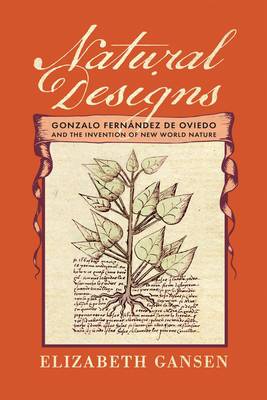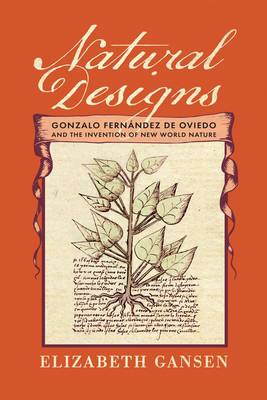
- Retrait gratuit dans votre magasin Club
- 7.000.000 titres dans notre catalogue
- Payer en toute sécurité
- Toujours un magasin près de chez vous
- Retrait gratuit dans votre magasin Club
- 7.000.0000 titres dans notre catalogue
- Payer en toute sécurité
- Toujours un magasin près de chez vous
77,95 €
+ 155 points
Description
Natural Designs chronicles the life and work of the earliest and most influential Spanish historian of the New World, Gonzalo Fernández de Oviedo (1478-1557). Through a combination of biography and visual and textual analysis, Elizabeth Gansen explores how Oviedo, in his writings, brought the European Renaissance to bear on his understanding of New World nature.
Oviedo learned much from the humanists with whom he came into contact in the courtly circles of Spain and Italy, including Giovanni Battista Ramusio and Pietro Bembo, and witnessed Christopher Columbus regaling Queen Isabel and King Ferdinand with news from his inaugural voyage to the Indies. Fascinated by the Caribbean flora and fauna Oviedo encountered on his arrival to the Caribbean in 1514, he made them the protagonists of his writings on the Indies. From his consumption of the prickly pear cactus, which led him to believe his death was imminent, to the behavior of the iguana, which defied his efforts to determine if the lizard was fish or flesh, his works reveal the challenges at the heart of Spain's encounter with the biological wonders of the Americas. Natural Designs foregrounds Oviedo's role as a writer, illustrator, and editor of New World nature. As much as Oviedo is credited as a pioneer in the literary genre of American natural history, his contributions to early modern conceptions of the flora and fauna of the Indies are still not widely understood and appreciated. Gansen situates us in the early sixteenth century to reappraise the works of the Spanish historian who first shaped these realities.Spécifications
Parties prenantes
- Auteur(s) :
- Editeur:
Contenu
- Nombre de pages :
- 248
- Langue:
- Anglais
- Collection :
Caractéristiques
- EAN:
- 9781512824568
- Date de parution :
- 14-11-23
- Format:
- Livre relié
- Format numérique:
- Genaaid
- Dimensions :
- 147 mm x 226 mm
- Poids :
- 476 g

Les avis
Nous publions uniquement les avis qui respectent les conditions requises. Consultez nos conditions pour les avis.






